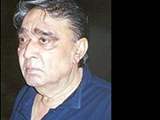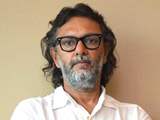In his autobiography titled The Stranger In The Mirror, director Rakeysh Omprakash Mehra writes about how he struggled to cope with failure of the film closest to his heart
THE TIMES OF INDIA (July 25, 2021)
As a child, when I stood at the top of Chandni Chowk, the grand avenue in Old Delhi, on my left I could see the Charity Birds Hospital. Next to it is the 800-year-old Gauri Shankar Temple, which has Shri Digambar Jain Lal Mandir as its neighbour. Opposite this temple is Delite Cinema and next to it is the Methodist Church. Churchgoers could see the highly revered Sis Ganj Sahib Gurudwara diagonally across them. And if you stood at the Gurudwara, you could see both McDonald’s and Haldiram’s. Visitors to these two would not be able to miss the Fatehpuri Masjid that stood at the end of Chandni Chowk, and when you turned around, you would see the Indian tricolour fluttering atop the Red Fort.
What a scintillating cauldron of cultural co-existence! Vastly varied customs, philosophies, values and traditions thrived side by side and dotted my active and eventful childhood.
My nani’s house was in Old Delhi, in an area called Charkhewalan, and my dada’s house was in Fatehpuri. We used to live in Gali Paswan (you will find a reference to this in Delhi-6), which was diagonally opposite to Gali Qasim Jan, where the heritage site Ghalib ki Haveli is located. All of us raucous striplings used to play hide and seek all over Ghalib ki Haveli, blissfully unaware of who Ghalib was. Quite often, we would hang out in Red Fort, sitting on the Peacock Throne (or what was left of it), pretending to be the emperor of India.
From this carefree existence to the Babri Masjid demolition on 6 December 1992, the Delhi of my childhood had changed. The sentiments triggered by the act snowballed into subsequent barbarity that manifested itself in the 1993 Bombay blasts, the Godhra train carnage, followed by the Gujarat riots in 2002 and the 2008 Mumbai terror attacks. This also served as the trigger for the original script of Delhi-6 in my mind.
For the cover design of the soundtrack of Delhi-6, we embedded an actual mirror on the CD cover and also when the first teaser poster of the movie was released. The idea was for society to take a good hard look at itself in the mirror.
The film opened on Friday, 20 February 2009, to a great response. By Sunday, we had done over Rs 40 crore of business, but then came Monday, and the audience just vanished from the theatres. I was devastated. Was it too dark a reality for them? Were they unable to identify with the protagonist?
The box office debacle, and my own conflict with what ending was appropriate, shook me deeply. Was I capable of producing great cinema consistently? Was Rang De Basanti a fluke?
Over a live radio interview in Delhi, a caller announced a death warrant for me: ‘Bàstard! How can you say Allah and Bhagwan are both inside you?’ The National Commission for the Scheduled Castes summoned me to their office. ‘How can you refer to Jalebi [Divya Dutta] as lower caste?’ they asked. Though I implored them to see my intention in context, the commission, led by a very senior Congress leader who was in Parliament, threatened to throw me out of the fourth floor of the window where the meeting was taking place at Khan Market in Delhi.
The audience and critics that had loved me and showered praises post RDB were taking me apart piece by piece.
‘The shockingly graceless final stretch... implodes under the treacly burden of its good intentions,’ wrote blogger Baradwaj Rangan. ‘It’s hard to qualify Delhi-6 as an actual film,’ wrote Raja Sen in a review titled ‘Yeh Silly Hai Mere Yaar’ on rediff.com.
I was going deeper and deeper into a dark hole. Unable to take it anymore, I drowned myself in alcohol. Not that I had never drunk before. In fact, I am infamous for getting drunk on my third drink, and post that, my behaviour is all about being footloose, singing songs, hugging and kissing my friends and so on!
This time, my relationship with alcohol and the reasons for which I was getting sunk in its stupor were different. I wanted to drink myself to death — to sleep and never get up. I could see how much pain I was bringing to Bharathi and our daughter, Bhairavi, who was now in her pre-teens. My son Vedant was observing and things were eroding between us. I remained careless and insensitive to the people I loved the most. As I let myself drown, a part of me started to look for a float. It was Bharathi who spoke to me and made me see reason.
Six months later, one morning I woke up with a clear head. I called Binod Pradhan.
Binod: You are still alive!
Me: Kind of.
Binod: Ready with your next?
Me: Not yet. I’m not done with Delhi-6. I want three days from you to finish it.
Binod: Sure, tell me about it.
I told him that the original script began with a scene in which the ashes are being immersed by Roshan’s father in the Ganges. From the very first frame, the audience knows that the hero is going to die, and his commentary narrations (recorded in the past tense since Roshan will die) lead us through the story, underlining key moments. (Viewers will recall that in the version that was released, Roshan comes back to life). Six months after the film was released, we spent three days shooting a new beginning — and modified the ending to Roshan not recovering from the mob violence that kills him.
Bharathi put her heart and soul into the new edit. She was rewriting the screenplays on the editing table while dealing with a wreck of a director and a husband.
The new edit went to the Venice International Film Festival. The morning after the screening, there was a small crowd and press reporters in my hotel lobby. They somehow had my photographs and wanted autographs. There was this senior critic from Variety and we got a front full page article for Delhi-6. The headline said: ‘(UN) BOLLYWOOD’.
This was heartening. Then came the national awards. Delhi-6 had won in two categories: Best production design (Samir Chanda) for the brilliant re-creation of Old Delhi and the Nargis Dutt Award for Best Feature Film on national integration. Suddenly, the dark humour came back full circle: how could I get death threats for making a film about national integration?
I would love to see my version of Delhi-6 with the newly shot ending in theatres again — we fondly call it the Venice cut — so audiences can see the story I wanted to tell.
Edited excerpts from The Stranger in the Mirror by Rakeysh Omprakash Mehra with Reeta Ramamurthy Gupta with permission from Rupa Publications
https://fenilandbollywood.blogspot.com/2021/07/with-sonam-kapoor-and-cinematogr-apher.html?m=1
















comment:
p_commentcount